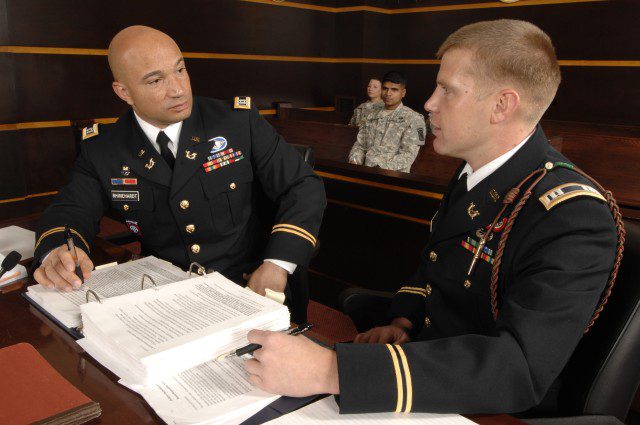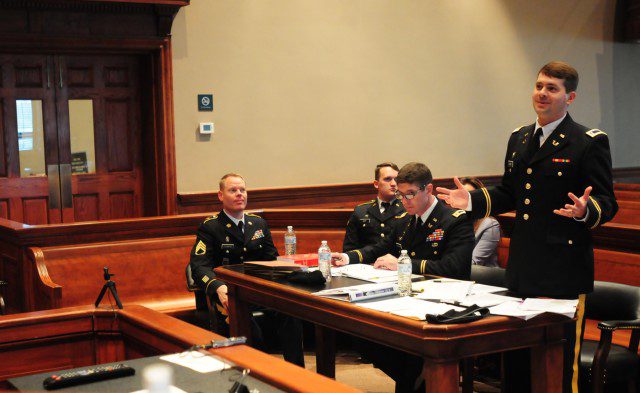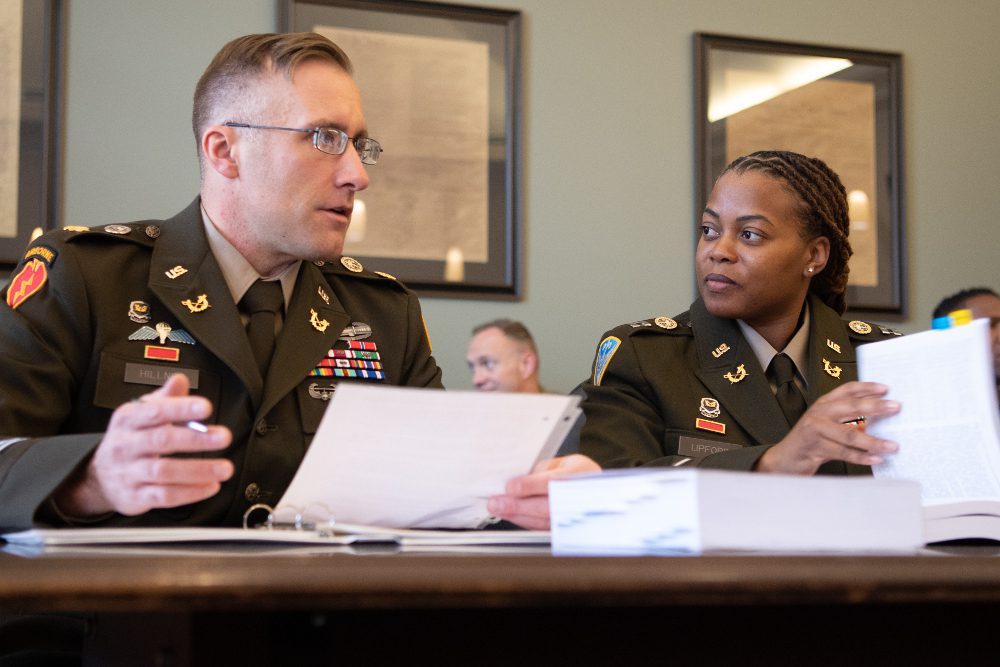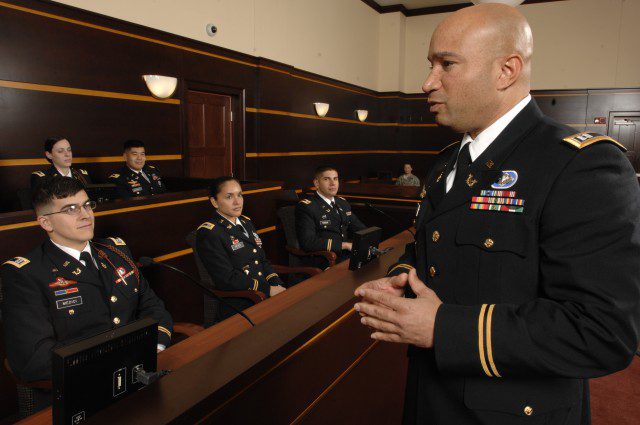
 Ignita Veritas United (IVU), as an intergovernmental organization (IGO), was developed primarily by Barristers and Judges, backed by international law firms, supported by law professors from university law faculties.
Ignita Veritas United (IVU), as an intergovernmental organization (IGO), was developed primarily by Barristers and Judges, backed by international law firms, supported by law professors from university law faculties.
These legal professionals worked together with international law experts who were veterans and government contractors of national law enforcement, national security and military intelligence agencies of multiple countries.
Those legal and governmental experts, supported by archaeology professors from university history faculties, developed the IGO to serve as an effective vehicle for major historical kingdoms of an ancient Royal Alliance to exercise their sovereignty.
The IGO was meticulously “reverse engineered” from the full 77+ years (since 1945) of the United Nations framework of the conventions of international law, which codified the rules of historical customary international law.
The IGO was thus diligently designed to strictly and precisely fulfill all relevant rules and criteria to establish its legal status.
As a result, the bases for its legal authorities are already “recognized” by the conventions, which were all ratified by essentially every country in the world.
 This IGO and its institutions exist with full legal authority and official status, because it is properly formed and operates strictly under specific mandates of codified international law, which were already ratified by essentially all countries in the world.
This IGO and its institutions exist with full legal authority and official status, because it is properly formed and operates strictly under specific mandates of codified international law, which were already ratified by essentially all countries in the world.
In other words, IVU only exists because the law declares the legal basis for it to exist. Nothing is invented, only existing law is implemented.
There are no “claims”, only solid legal proofs. Nobody is asked to “believe” IVU on its own authority, because essentially every statement it makes is anchored in direct quotes of codified law, citing specific section numbers.
It is a verifiable legal fact, that the law says exactly what IVU says it says. IVU exists and has official status entirely because it is a construct of international law, which recognized and codified all of the rules and bases for its authorities.
Precisely because it is a construct of international law, under the 1969 Convention on the Law of Treaties it is classified as a sovereign “subject of international law” possessing statehood and diplomatic status (Article 3(b)).
Therefore, those who oppose its missions of upholding human rights and the rule of law can only say they “don’t like it”, but nobody can say it is not real, and nobody can say it is not legal.
Anyone denying its authorities, is only denying the reality of the law. Denying the law proving the legal basis for authorities of IVU, as a consequence, would necessarily also dismiss the basis for all other IGOs, which rely on exactly the same rules.
The relevant mandates of international law, fully proving the reality and authorities of IVU as an IGO, are presented here in the below sections of this report.
Ignita Veritas United (IVU) is solidly built upon codified and binding rules of international law. However, contrary to public perception, this is not the “admiralty” law of ships at sea in commerce. Also, it is not the superficial supposed “international law” of mere contractual “treaties” of modern countries, which are seen by the People to increasingly disregard and even violate binding law on human rights.
Under the 1969 Convention on the Law of Treaties, the most important convention ratified by essentially every country in the world, when any treaty violates “Rules [rights] of international law” (Article 31.3) and is thus “unreasonable” (Article 32), or is “fraudulent” (Article 49), it is “invalid” (Article 42.1) and “void” (Articles 53, 64, 69).
Rather, IVU was built upon the “conventions” which recognize and codify timeless and universal principles of real law and rights. This marks a return to the “real international law” of human rights and national sovereignty under the rule of law, which is necessary to reclaim and restore Peoples Rights.
Under the 1969 Convention on the Law of Treaties, rights codified in a convention can not be revoked, and remain binding: “When a right has arisen” by a convention recognizing it, “the rights may not be revoked or modified” (Article 37.2). Once a right is “recognized as such” by a convention, it “becomes binding upon a third State [non-signatory]” (Article 38) “independently of the convention” (Articles 3(b), 43).
The modern history of the development of the most recognized intergovernmental organizations (IGOs) of territorial countries, reveals that it can take many years of slow growth for member countries to join a new IGO.
These precedents evidence that even the most officially backed and heavily promoted IGO, with essentially unlimited funding, can take 10-20 years for a substantial number of modern territorial countries to join, averaging about 11 countries every 10 years.
Already strongly united by the Alliance of the First World War (WWI), the League of Nations was founded in 1920 with 48 member countries, and took until 1934 to include 58 countries, averaging growth of 5 countries every 7 years (0.7 per year).
Membership declined to 25 countries prior to its dissolution in 1946, such that it also lost an average of about 1 country per year, more than it gained.
The loss of membership leading to its dissolution was mostly caused by expelling the Soviet Union in 1939 by a vote of less than half of the Council, violating its own Charter rule requiring a vote of a majority. (This demonstrates that an IGO disregarding its own rules undermines its legitimacy and causes it to lose authority.)
The history of development of the United Nations (UN), as the dominant international (not regional) IGO, demonstrates that it takes at least 10-16 years to have a substantial number of modern territorial countries join as members:
Directly from the League of Nations as its predecessor [1], the UN began with 51 member countries in 1945, which slowly grew to 76 countries over 10 years, and 104 countries over a total of 16 years. It came to include 191 countries only after 55 years, averaging growth of 1 country every 2.5 years (0.4 per year). [2]
A full 10 years after the United Nations was established by the UN Charter of 1945, a large number of countries still refused to join the UN as an IGO:
This is evidenced by the fact that in 1955, the Non-Aligned Movement (NAM) of countries (now 70% of the UN General Assembly) appointed many “Liaison Officers” for informal back-channel diplomacy, for “countries who were not members of such international organizations” [3], and declared the concept of demanding UN Reform [4].
As the UN was still developing, 16 years after the UN Charter, many countries still did not accept its authorities, and joined only reluctantly with reservations and criticisms:
This is evidenced by the fact that in 1961, the NAM countries again declared the movement demanding UN Reform [5].
Already being promoted by the United Kingdom since 1942 [6], the League of Arab States (Arab League) was founded in 1945 with 7 member countries, and took until 1976 to include most of its current 22 countries, averaging growth of 1 country every 0.5 years (2 per year).
Already promoted by multiple Heads of State, the Organization of African Unity (OAU), the predecessor to the African Union (AU), was founded in 1963 with 32 member countries, and took until 1994 to include 55 countries, averaging growth of 3 countries every 4 years (1.33 per year).
Already united by the former Soviet Union, the Commonwealth of Independent States (CIS) was founded in 1991 with 11 member countries, and took until 1994 to include 15 countries, averaging growth of 4 countries in 3 years (1.33 per year).
 As evidenced by the precedents above, a new IGO heavily promoted by countries with essentially unlimited funding can take decades for a substantial number of modern territorial countries to join.
As evidenced by the precedents above, a new IGO heavily promoted by countries with essentially unlimited funding can take decades for a substantial number of modern territorial countries to join.
Therefore, an alternative IGO founded by non-territorial (international) Historical States, developing quietly, reliant upon grass-roots funding from the People, can be expected to have a slow process of gaining mainstream recognition, taking 10-20 years for the first modern territorial countries to join as Member States.
Precisely for this purpose supporting development, modern conventional international law specifically recognizes the legal authorities of alternative states, which are not territorial countries and not members of the United Nations, forming a valid IGO.
Codified international law, ratified by essentially every country in the world, firmly establishes that non-territorial (international) Historical States have the absolute legal right to fully exercise their sovereignty as alternative States, including the full legal authority to officially establish and operate through their own IGO:
International law establishes that for full legal effect of a Charter treaty creating an IGO, no permission nor registration with any country nor any other IGO is required, as the founding States alone have the legal power to create their own IGO:
The 1969 Convention on the Law of Treaties establishes that an “international organization means an intergovernmental organization [IGO]” (Article 2.1(i)), and confirms that “the constituent instrument of an international organization”, meaning the founding constitutional Charter of an IGO, is a “treaty” (Article 5).
It specifically provides that its “rules” for a Charter treaty apply to all “States and other subjects of international law” other than territorial countries, thus including Historical States which are not members of the United Nations (Article 3(b)).
It further confirms that “Every State possesses capacity to conclude treaties”, thus including non-territorial Historical States which are not UN members (Article 6).
It declares that “a treaty enters into force” as determined exclusively by “the negotiating [founding] States” ratifying the Charter (Article 24.1-2), and that the “depositary” agent for publishing the Charter is determined solely “by the negotiating [founding] States” themselves (Article 76.1).
The 2004 Convention on Jurisdictional Immunities of States describes an IGO being legally established as an “agency or instrumentality of the State[s] or other entities… of sovereign authority” (Article 1(b)(iii)).
This additionally confirms that an IGO can be established and empowered by “other entities” of sovereignty, such as non-territorial Historical States which are not UN members.
(Click to see Sovereign Charter founding treaty)
The sovereign authority and diplomatic status of Historical States from ancient or medieval international law, and their resulting legal capacity to establish a Charter treaty forming their own IGO, is valid and binding, and cannot be denied:
The 1961 Convention on Diplomatic Relations declares that “all nations from ancient times have recognized the status of diplomatic agents”, including the “sovereign equality of States” with “differing constitutional and social systems” (Preamble: ¶1-3).
The 1969 Convention on the Law of Treaties directly includes non-territorial Historical States, declaring that “the rules of customary [historical] international law continue to govern” (Preamble: ¶8), and that such “customary rules of international law” are “binding upon” all other States (Article 38).
The legal doctrine that “the rules of customary [historical] international law continue to govern”, and are binding on all countries, is confirmed in the 1961 Convention on Diplomatic Relations (Preamble: ¶5, Article 47.1), 1963 Convention on Consular Relations (Preamble: ¶6), 1969 Convention on Special Missions (Preamble: ¶8), 2004 Convention on Jurisdictional Immunities of States (Preamble: ¶5), and 2005 Principles on Right to a Remedy for Human Rights (Article 1).
The sovereign diplomatic status of non-territorial Historical States since ancient times is also binding on all countries as “rules… to which they [are] subject under international law independently of [a] convention” (1969 Convention on the Law of Treaties, Articles 3(b), 43), and as “other sources of international law” (1945 Charter of the United Nations, Preamble: ¶3).
The 1970 Declaration on Law of Cooperation of States further confirms the “principle of sovereign equality of States” (6th Principle) as a doctrine of international law, such that no country can deny the official authority of a non-territorial Historical State, which can prove its sovereignty under historical customary international law.
The 2012 Declaration on the Rule of Law additionally confirms that “the rule of law applies to all States equally”, which are “entitled without any discrimination to equal protection of the law.” (Article 2)
Notice: Legalization of an historical State is not a claim to govern its former territory in modern times, but only asserts sovereignty as a non-territorial (international) State, as necessary to protect its participation in diplomatic relations, its cultural heritage restoration projects, and the human rights of its Nationals.
A rule of historical international law is that a minimum of only two Member States is needed to form an IGO with full official legal status and authorities. A modern precedent evidencing this rule is the “Russia-Belarus Union”, founded in 1995.
The 1969 Convention on the Law of Treaties defines that “[a] ‘treaty’ means an international agreement concluded between States”, using the simple plural word “States” which could be two, without indicating any minimum number (Article 1(a)).
The Royal Alliance of Independent States (RAIS) is an ancient treaty alliance of the first major kingdoms in world history, from ca. 14,000 BC, which is the first known “intergovernmental organization” (IGO) in recorded history, thus “the original” IGO.
Its existence and geopolitical power for thousands of years was well documented in the historical record of classical historians, supported by archaeology.
The Royal Alliance is well known at the top levels of United Nations power structures, because in 1945 it placed all of its assets as security underwriting backing the UN International Monetary System.
As a result, its history and sovereign authorities are documented in the classified Inter-Bank computer system of the Bank of International Settlements (BIS) and related agencies within the UN system.
From 2016, leading kingdoms of the Royal Alliance worked with Ignita Veritas United (IVU), whose Barristers helped to legally restore the Royal Alliance in 2018.
As a result, the founding Member States of IVU are the kingdoms of the Royal Alliance as Historical States, and the Alliance itself as the “original IGO”. The Alliance constitutionally operates through IVU as its chosen exclusive vehicle for its diplomatic relations and sovereign infrastructure in conventional international law.
(Click to see Royal Alliance backing IVU)
 The United Nations (UN), and all other intergovernmental organizations (IGOs), were established on the basis of precisely the same rules and protocols of international law, which also established Ignita Veritas United (IVU) with full legal authority.
The United Nations (UN), and all other intergovernmental organizations (IGOs), were established on the basis of precisely the same rules and protocols of international law, which also established Ignita Veritas United (IVU) with full legal authority.
Thus, the legal basis and official authorities of IVU cannot be denied, without also denying the same basis for all other IGOs, including the UN, and thereby denying the authority of all agencies of the UN system.
The 1969 Convention on the Law of Treaties recognizes that an IGO is an alternative type of “State”, as a “subject of international law” (Article 3), which can ratify “treaties” as an “international organization” (Articles 5, 2.1(i)).
The 1970 Declaration on Law of Cooperation of States declares the fundamental “principle of sovereign equality of States” (6th Principle). This necessarily means that IGOs also have sovereign equality, as a matter of law.
The 1974 Charter of Economic Rights of States confirms that the principle of sovereign equality of States directly applies to IGO institutions: “All States are juridically [legally] equal… as equal members of the international community”, specifically including “international organizations [IGOs]” (Article 10).
The 2012 Declaration on the Rule of Law confirms that “international organizations [IGOs]” are treated as “States equally… entitled without any discrimination to equal protection of the law.” (Article 2)
Therefore, the legal status of Ignita Veritas United (IVU) as an IGO is equal to that of the United Nations (UN) which is also an IGO, founded in the same way by the same type of Charter treaty with the same basis of the same rules of international law.
For establishment of a new IGO, there is no existing governmental agency anywhere in the world which can grant any “permission” nor “registration” to create an IGO. This is because no such requirement exists, and because it would be a violation of international law for any other IGO, country or international agency to presume such authority.
An IGO is legal and official solely by its Charter treaty, established by its founding States, exclusively by their own sovereign authority and independent jurisdiction:
No UN Authority – The 1945 Charter of the United Nations declares that “Nothing… shall authorize the United Nations to intervene in matters… within the domestic jurisdiction of any State”, thus including non-member States and their own independent IGO (Article 2.7).
The 1969 Convention on the Law of Treaties further declares that the United Nations has no authority to serve as the “depositary” for “registration” and “publication” of any Charter treaty forming an IGO, unless it is given “authorization” by the founding States (Article 80), who can designate their own IGO as the depositary (Article 76.1).
No Country Authority – The 1969 Convention on the Law of Treaties confirms the most fundamental “principles of international law… of the sovereign equality and independence of all States, [and] of non-interference in the domestic [sovereign] affairs of States” (Preamble: ¶6).
The 2004 Convention on Jurisdictional Immunities of States establishes that an IGO is a type of “State” in its own right, officially formed as an “agency or instrumentality of the State[s]” which founded its Charter treaty (Article 1(b)(iii)), which thereby has “immunity… from the jurisdiction of… another State” (Article 5).
The 1981 Declaration on Internal Affairs of States confirms that an IGO as a State is officially formed to serve as a joint governmental agency conducting the “external affairs of States” for its members (Preamble: ¶7, Article 1).
As a result of the above established international law, for any international agency or any country to require an IGO to have any permission or registration, from them or from any other jurisdiction, would be an illegal violation of the immunity of sovereign jurisdiction of the founding Member States of the IGO.
Ignita Veritas United (IVU) quietly maintains a discrete network of diplomatic representation, through both official and unofficial channels. It primarily engages in bilateral diplomatic relations with a wide range of individual sovereign States, both territorial and non-territorial.
It is known in some official circles that IVU is actively engaged in diplomatic relations, in both formal and alternative channels, through its appointed Ambassadors from time to time, assisting and cooperating with various countries and international agencies, separately and independently.
However, it is prohibited by law to disclose diplomatic relations, whether through official channels or unofficial back-channels. Diplomatic relations are subject to strict confidentiality, and are not to be used for any self-promotion:
International law requires diplomatic confidentiality of all “communications” and “official correspondence” through diplomatic channels (1961 Convention on Diplomatic Relations, Article 27.1-3; 1963 Convention on Consular Relations, Article 35.1-3; 1969 Convention on Special Missions, Article 38.1-4).
Therefore, diplomatic relations with any particular State are not to be disclosed unless and until they agree to make that public, usually by officially publishing a signed treaty or registered embassy.
(Click to see Diplomatic Relations activities of IVU)
Ignita Veritas United (IVU) maintains complete Evidence Packages, for several layers and levels of the legal status and authorities of the IGO and its institutions, which are provided in response to any genuine inquiries:
The first Evidence Package is in fact this Official Website, which fully presents extensive direct quotes to codified law citing specific section numbers, thereby giving public notice of the legal bases of all statements made.
Other Evidence Packages fully present all relevant court-admissible evidence, consisting of legal evidence of official documents proving all facts related to each topic.
Topics of Evidence Packages include the Royal Alliance of Independent States (RAIS) of sovereign kingdoms which founded the IGO, and two leading Member States of the Alliance, as well as any relevant founding or key officials.
IVU routinely provides Evidence Packages privately to verified officials, qualified professionals, or vetted potential donors, on a “need to know” basis, for any genuinely intended potential cooperation or transaction.
IVU will not provide Evidence Packages in response to illegal false defamation, but rather will provide them directly to relevant law enforcement agencies, to prove the defamation false, to file criminal charges for false defamation.
Any negative claimed “due diligence” which fails to request or ignores the legal documents in the Evidence Packages, may be prosecuted for criminal false defamation.
(Click to use the Contact Form to request Evidence)
A concise educational presentation on conventional international law, with copies of all Conventions presented in this report, is provided on the following webpage:
(Click to visit International Law Sources for all evidence)
 The modern framework of conventions, codifying and recognizing the rules of international law, are binding upon all countries, even non-signatory countries:
The modern framework of conventions, codifying and recognizing the rules of international law, are binding upon all countries, even non-signatory countries:
The 1969 Convention on the Law of Treaties establishes that “a rule set forth” in a convention “becom[es] binding upon a third State [non-signatory] as a customary rule of international law, recognized as such” by the convention (Article 38).
All States must “fulfill any obligation” in a convention “to which it would be subject under international law independently of the treaty [convention]” (Article 43).
The conventions of international law are also binding upon the United Nations (UN), and all agencies within the UN system:
The 2012 Declaration on the Rule of Law declares that “the rule of law applies to all States equally, and to international organizations [IGOs], including the United Nations and its principal organs [agencies]”, which must be “accountable” for any violations (Article 2).
Therefore, all country governments, and all agencies within the United Nations system, cannot deny the rules of the conventions of international law proving the legal authorities of a properly formed IGO.
Countries and UN agencies cannot deny the binding effect nor disregard the rules of the conventions of international law, without undermining their own authority, which is entirely based upon that same UN framework of conventional international law:
The 2012 Declaration on the Rule of Law declares that “all States”, and all “international organizations [IGOs], including the United Nations and its principal organs [agencies]”, must “respect… the rule of law” as the necessary basis giving “legitimacy to their actions” (Article 2).
If any United Nations agencies would deny or disregard the rules of conventions which establish the authorities of another IGO, then they would reject precisely the same rules which are the sole basis for their own official status, thereby abdicating all of their authorities.
If any country governments would deny or disregard the conventions proving the authorities of an IGO as a sovereign State, then they would reject the same body of rules which is the sole basis for their own sovereignty of statehood, thereby abdicating all authorities of their own government.
The legal term “due diligence” originated from the United States Securities Act of 1933, which required a duty of “reasonable investigation” by some degree of effort considered to be diligent (Section 11(b)(3)). This became the legal precedent for due diligence practices in corporate law and banking compliance.
This practice protects against legal liability for any third-party information later found to be undisclosed or unproven, by preventing any misleading statements which are falsehoods or misrepresentations.
Unfortunately, supposed “due diligence” increasingly attempts to justify the willful or negligent creation of criticism that is provably false. Usually, this quickly develops into negative talking points of accusations, without any evidence of relevant facts of claimed defects, typically disregarding all law proving legitimacy.
The end result is that such claimed “due diligence” actually ends up instead proving “undue negligence” of the critic, as the source of illegal false defamation.
Such abuse of “due diligence” is a flagrant violation of the legal obligation to verify truth of legitimacy, by willful disregard of positive evidence and even relevant law. Ironically, that only results in creating negative falsehoods and misrepresentations.
Therefore, any officials or executives responsible for supposed “due diligence”, who create negative information ignoring evidence and law proving legitimacy, commit a serious violation of their responsibilities, and thus can be terminated from employment, and incur legal liability for unlawful false defamation.
Denying the legal fact of legal proof quoting codified law is deceptive and false. Denying legal legitimacy of a professional or institution which proves its legal bases quoting law is illegal false defamation, which can be prosecuted as a criminal offense.
Although “false defamation” is usually not considered a crime by itself as such, it is a serious criminal offense when it constitutes “fraud” intended to cause loss by falsely damaging a professional reputation to interfere with honest lawful services:
This Common Law crime is codified in the United States Code as a “Scheme or Artifice to Defraud”, defined as deception “to deprive another of the intangible right of honest services” (18 USC 1346), punishable by 20 years in prison (18 USC 1343);
In the United Kingdom and British Commonwealth law, the crime of “Fraud Causing Loss” is codified in the UK Fraud Act 2006, as “false representation” to “cause loss” (§2(1)), including “intangible property” such as a professional reputation, clients, or honest services for clients (§5(2)), punishable by 10 years in prison (§1(3)(b)).
Therefore, anyone denying the legitimacy of IVU as an IGO, by denying or disregarding the legal proof of quoted laws with verifiable source references which is shows publicly, is making defamatory false statements.
Communicating such defamation which is provably false to third parties, constitutes criminal Fraud Causing Loss. Ironically, while typically accusing others of “fraud” without basis, such unlawful false defamation itself engages in the most common form of real criminal fraud.
International law gives special law enforcement protections to Officials of an intergovernmental organization (IGO), and also to any other Foreign Officials of its Member States. It is an international crime to attack the professional reputation of such Officials by defaming the IGO or the individuals:
The 1973 Convention on Internationally Protected Persons mandates that “any Official of a State or of an international organization of an intergovernmental character [IGO]” is “entitled to special protection” as an “internationally protected person”;
Specifically, it is an international crime to commit “any attacks upon the person, freedom or dignity [reputation]”, thus including defamation, against such IGO or Foreign Official. (Articles 1.1(b), 2.3.) Note that protected “freedom” includes the right to practice one’s profession and perform one’s official duties for the IGO.
Under that Convention, all countries are required to prosecute any crimes against an IGO or foreign Official, whenever “committed in the territory of” or by a “national of” that country (Article 3(b)-(c)).
(Click for Exposing Defamation report)
(Click for Criminal Defamation report)
[1] F.S. Northledge (Editor), The League of Nations: Its Life and Times 1920-1946, Holmes & Meier (1986), pp.185-186.
[2] United Nations, Official Website: About Us, “Growth in UN Membership”.
[3] 1955 NAM Bandung Conference Founding Principles, Section A-11.
[4] 1955 NAM Bandung Conference Founding Principles, Section F-1.
[5] 1961 NAM 1st Summit Belgrade Declaration, Article 24.
[6] BBC News, Profile: Arab League (24 August 2017).
You cannot copy content of this page
